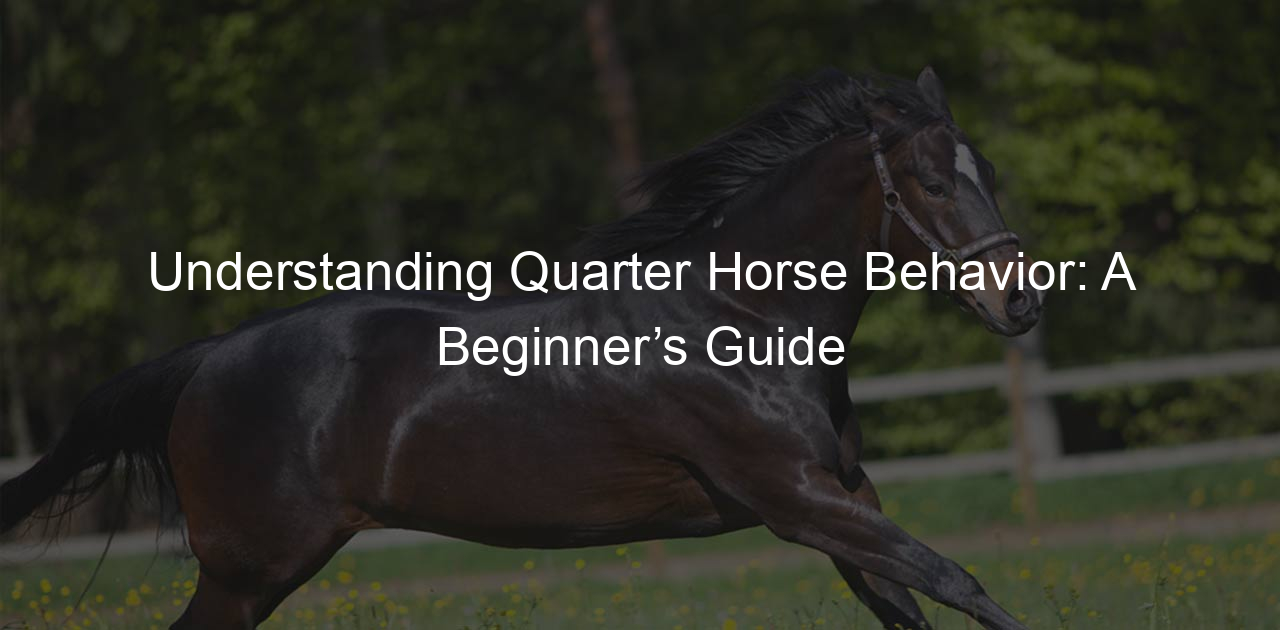
The Benefits of Slow Feeding for Quarter Horses: An Introduction
Quarter Horses are known for their speed and agility. However, their feeding habits need special attention. One effective method is slow feeding. Let’s explore what slow feeding is and why it is important for Quarter Horses.
- Understanding the concept of slow feeding: Slow feeding means giving horses their food in a way that makes them eat slowly. This can be done using special feeders that make it harder for the horse to get the food quickly. The goal is to mimic how horses eat in the wild, grazing throughout the day.
- Why slow feeding is necessary for Quarter Horses: Quarter Horses are prone to certain health issues like colic and obesity. Slow feeding helps prevent these problems by ensuring they eat at a natural pace. It also keeps them busy, reducing boredom and stress.
In the following sections, we will dive deeper into the nutrition needs of Quarter Horses, different slow feeding methods, and the health benefits that come with this feeding approach.
Understanding Quarter Horse Nutrition
Essential Nutrients for Quarter Horses
Proper nutrition is key to keeping your Quarter Horse healthy and strong. Let’s explore the essential nutrients they need.
- Proteins: Are the building blocks of muscles. They help in growth and repair. Horses need proteins from good sources like alfalfa and soybean meal.
- Carbohydrates: Provide energy. Horses get these from grains like oats and barley. It’s important to balance carbs to avoid too much sugar.
- Fats: A great energy source. They help keep the coat shiny and skin healthy. Good fat sources include vegetable oil and rice bran.
- Vitamins and Minerals: Are vital for overall health. They support bone strength, immune function, and more. Horses get these from fresh forage and supplements.
| Nutrient | Importance | Sources |
|---|---|---|
| Proteins | Muscle growth and repair | Alfalfa, soybean meal |
| Carbohydrates | Energy | Oats, barley |
| Fats | Energy, healthy coat | Vegetable oil, rice bran |
| Vitamins and Minerals | Overall health | Fresh forage, supplements |
Quarter Horse Diet Improvement
-
- Importance of a balanced diet
It ensures they get the right mix of nutrients to stay strong and active. A good diet helps in maintaining a healthy weight, shiny coat, and strong hooves. According to Wikipedia, a balanced diet includes the right amounts of proteins, carbohydrates, fats, vitamins, and minerals.
-
- Adjusting the diet according to the horse’s age and activity level
Young horses need more proteins for growth, while older horses might need more fiber to aid digestion. Active horses, like those used in competitions, require more energy-rich foods. Adjusting their diet helps in meeting their specific needs at different life stages.
Slow Feeding Methods for Horses
Types of Slow Feeders for Quarter Horses
- Hay NetsA popular choice for slow feeding. They have small holes that make it harder for horses to pull out large amounts of hay at once. This helps to mimic natural grazing behavior.
Using hay nets can help reduce the risk of colic and other digestive issues. They also keep the hay clean and off the ground.
- Hay BallsThese are round feeders with small openings. Horses must roll the ball to get the hay out.
This method encourages physical activity and mental stimulation. It also helps to slow down their eating pace, promoting better digestion.
- Feeding StationsDesigned to hold hay in a way that makes horses work to get it. These can be wall-mounted or free-standing units with restricted access to the hay.
Feeding stations are great for managing multiple horses. They help to control portions and reduce waste.
Implementing Slow Feeding Techniques
- Transitioning to Slow Feeding:Start by using a hay net or a slow feeder. This helps your Quarter Horse get used to eating slowly. Gradually reduce the amount of loose hay. This way, your horse will adapt without stress.
Experts suggest starting with a 50-50 mix of loose hay and hay in a slow feeder. Over a week, increase the slow feeder portion. This method is gentle and effective.
- Maintaining a Slow Feeding Routine:Make sure to refill the slow feeder regularly. This keeps your horse from getting hungry and stressed. A steady routine helps your horse stay healthy and happy.
Monitor your horse’s weight and health. Adjust the feeding amount if needed. Regular vet check-ups can ensure your horse is thriving on the slow feeding system.
Health Benefits of Slow Feeding for Quarter Horses
Improvement in Digestive Health
Slow feeding can greatly improve the digestive health of Quarter Horses. By allowing them to eat at a natural pace, several health issues can be prevented.
- Reduction in the risk of gastric ulcers: Horses have a constant production of stomach acid. When they eat slowly and more frequently, the acid is neutralized more effectively. This reduces the risk of painful gastric ulcers.
- Prevention of colic: Colic is a serious condition that can be life-threatening for horses. Slow feeding helps in better digestion and reduces the chances of colic by ensuring the digestive system is not overloaded.
According to a study published on Wikipedia, colic is one of the leading causes of death in horses. Slow feeding can be a simple yet effective way to mitigate this risk.
| Health Issue | How Slow Feeding Helps |
|---|---|
| Gastric Ulcers | Neutralizes stomach acid, reducing ulcer risk |
| Colic | Ensures better digestion, reducing colic risk |
Enhancement in Overall Health
- Improved dental health: Slow feeding helps Quarter Horses chew their food more thoroughly. This action naturally cleans their teeth and reduces the risk of dental problems. According to Wikipedia, proper chewing can prevent sharp edges on teeth, which can cause pain and difficulty eating.
- Better weight management: Slow feeding allows horses to eat smaller amounts over a longer period. This helps in maintaining a healthy weight. Horses that eat too quickly can become overweight, leading to other health issues. Slow feeding mimics natural grazing, which is better for their metabolism.
- Increased lifespan: By improving dental health and managing weight, slow feeding can contribute to a longer, healthier life for Quarter Horses. Healthy horses are less likely to suffer from diseases and conditions that can shorten their lifespan. Studies show that horses with balanced diets and proper feeding methods live longer and have better quality of life.
Case Studies: Slow Feeding Benefits for Quarter Horses
-
Case Study 1: Improved Digestive Health
In this study, a group of Quarter Horses was introduced to a slow feeding system. The horses were given hay through slow feeders, which made them eat more slowly. After a few months, the horses showed significant improvements in their digestive health.
Key Findings:
- Reduced risk of colic
- Better nutrient absorption
- More consistent digestion
According to Wikipedia, colic is a common digestive issue in horses that can be very serious. Slow feeding helps prevent this by ensuring horses eat at a natural pace.
-
Case Study 2: Enhanced Overall Health
Another study focused on the overall health of Quarter Horses using slow feeders. The horses were monitored for changes in weight, coat condition, and energy levels. The results were promising.
Key Findings:
- Stable weight management
- Shinier, healthier coats
- Increased energy levels
These improvements suggest that slow feeding not only aids digestion but also contributes to the general well-being of Quarter Horses. For more information on horse health, you can visit Wikipedia.
Conclusion: Adopting Slow Feeding Systems for Horses
- Recap of the benefits of slow feeding for quarter horses:Slow feeding offers many benefits for quarter horses. It helps in better digestion and prevents colic. Horses eat more naturally, which keeps them happy and healthy. Slow feeding also helps in maintaining a healthy weight and reduces the risk of ulcers.
- Final thoughts on implementing slow feeding techniques:Implementing slow feeding techniques is simple and beneficial. Start by using slow feeders or hay nets. Monitor your horse’s eating habits and adjust as needed. Mimic natural grazing. This will lead to a healthier and happier horse.









